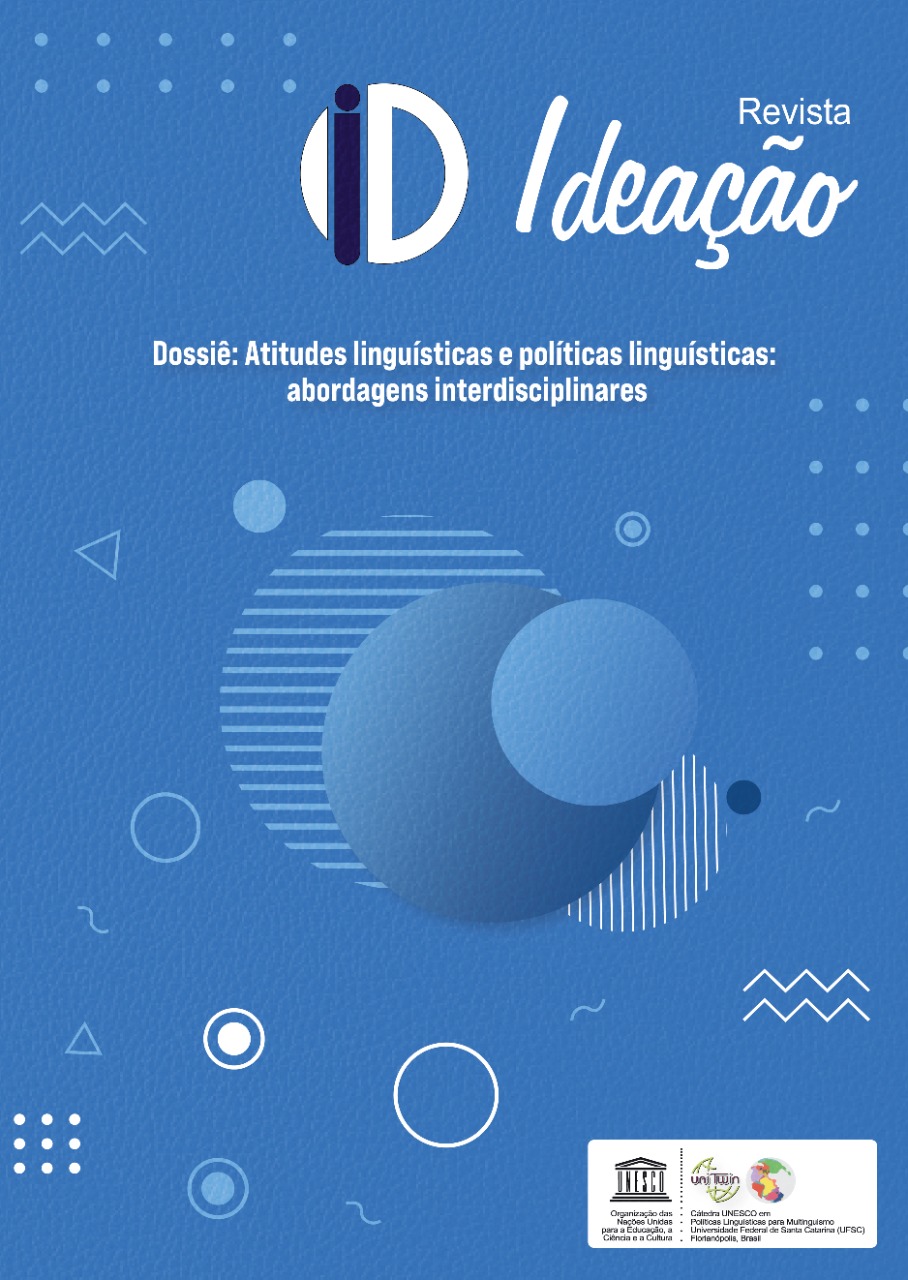MULTILINGUALISM AND LANGUAGE ATTITUDE THE “CAMEROONIAN PARADOX”
DOI:
https://doi.org/10.48075/ri.v22i2.26055Palavras-chave:
Multilingualism, Cameroon, Postcolonialism,Resumo
The colonial past of Cameroon has serious consequences on its present, positive as well as negative. As a positive consequence, French-English bilingualism is perhaps the most noteworthy, resulting from the shared governance of the colony between France and Britain. However, while the British administration adopted the ‘Indirect rule’, the French colonists were led by a policy of assimilation which aimed at turning the colonized people into French individuals, particularly in their mind and education. This process involved relegating the numerous indigenous languages (about 250 in Cameroon) to the background, for the benefit of the French language whose prestige was high enough to subjugate Cameroonians. Thus, parents gradually ceased to pass down their language to their children. The younger generations, therefore inherited French as their mother tongue, but now they feel the need to recover their lost inheritance, i.e., indigenous languages. This is what we call here the “Cameroonian paradox”. This paper presents the results of a sociolinguistic survey of 32 Cameroonians living in France. The Postcolonial theory helps us understand this paradoxical phenomenon while raising issues of identity and language endangerment.
Downloads
Publicado
Como Citar
Edição
Seção
Licença
Política para Periódicos de Acesso Livre
Autores que publicam nesta revista concordam com os seguintes termos:
1. Autores mantém os direitos autorais e concedem à revista o direito de primeira publicação, com o trabalho simultaneamente licenciado sob a Licença Creative Commons Attribution que permite o compartilhamento do trabalho com reconhecimento da autoria e publicação inicial nesta revista.
2. Autores têm autorização para assumir contratos adicionais separadamente, para distribuição não-exclusiva da versão do trabalho publicada nesta revista (ex.: publicar em repositório institucional ou como capítulo de livro), com reconhecimento de autoria e publicação inicial nesta revista.
3. Autores têm permissão e são estimulados a publicar e distribuir seu trabalho online (ex.: em repositórios institucionais ou na sua página pessoal) a qualquer ponto antes ou durante o processo editorial, já que isso pode gerar alterações produtivas, bem como aumentar o impacto e a citação do trabalho publicado (Veja O Efeito do Acesso Livre).
Licença Creative Commons
Esta obra está licenciada com uma Licença Creative Commons Atribuição-NãoComercial-CompartilhaIgual 4.0 Internacional, o que permite compartilhar, copiar, distribuir, exibir, reproduzir, a totalidade ou partes desde que não tenha objetivo comercial e sejam citados os autores e a fonte.


